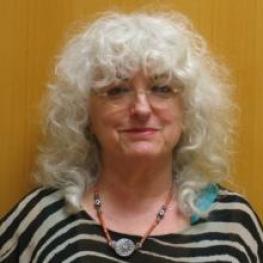The "Wandering Jew" in the Jewish and Christian Imagination
Institute for Jewish-Catholic Relations of Saint Joseph’s University
Lapsley Room, Haub Executive Suite, McShain Hall
5600 City Avenue, Philadelphia, PA 19131
The “wandering Jew”—doomed, according to legend, to roam the world until the end of days—was a powerful creation of the medieval imagination. As a derogatory image, it meant that God had cursed the Jews for their unbelief. Despite its anti-Jewish connotation, the wanderer could also be found, albeit differently, in Jewish folklore, art, and literature. Galit Hasan-Rokem unravels this multidimensional tradition that evolved over centuries of creative contact between Jews and Christians.
Click here to download a printable flyer [pdf].
Part of our year-long series of public programs, Jews Beyond Reason: Celebrating Emotion, the Unconscious, and Other Dimensions of Jews' Inner Lives. In partnership with local host institutions, our aim is to connect fellows and colleagues with non-academic audiences in a spirit of shared exploration and mutual engagement.
Featuring
Galit Hasan-Rokem
Hebrew University of Jerusalem
Galit Hasan-Rokem was born in Helsinki, Finland, and immigrated to Israel in 1957. She is the Max and Margarethe Grunwald Professor of Folklore at the Hebrew University of Jerusalem, where she teaches in the Department of Hebrew Literature and the Jewish and Comparative Folklore Program. From 2001 to 2004 she served as head of the Mandel Institute of Jewish Studies, and from 1998 to 2005 as president of the International Society for Folk Narrative Research. Her scholarly works include Web of Life: Folklore and Midrash in Rabbinic Literature and Tales of the Neighborhood: Jewish Narrative Dialogues in Late Antiquity. She was co-editor, with Shirley Kaufman and Tamar Hess, of the anthology The Defiant Muse: Hebrew Feminist Poems from Antiquity to the Present. She has also published several volumes of poetry. Her current research projects include: “Experience as an Interpretative Category of Rabbinic Literature and Ethnography” and continuing work on the motif of “The Wandering Jew,” which she will pursue during her time at the Katz Center.

